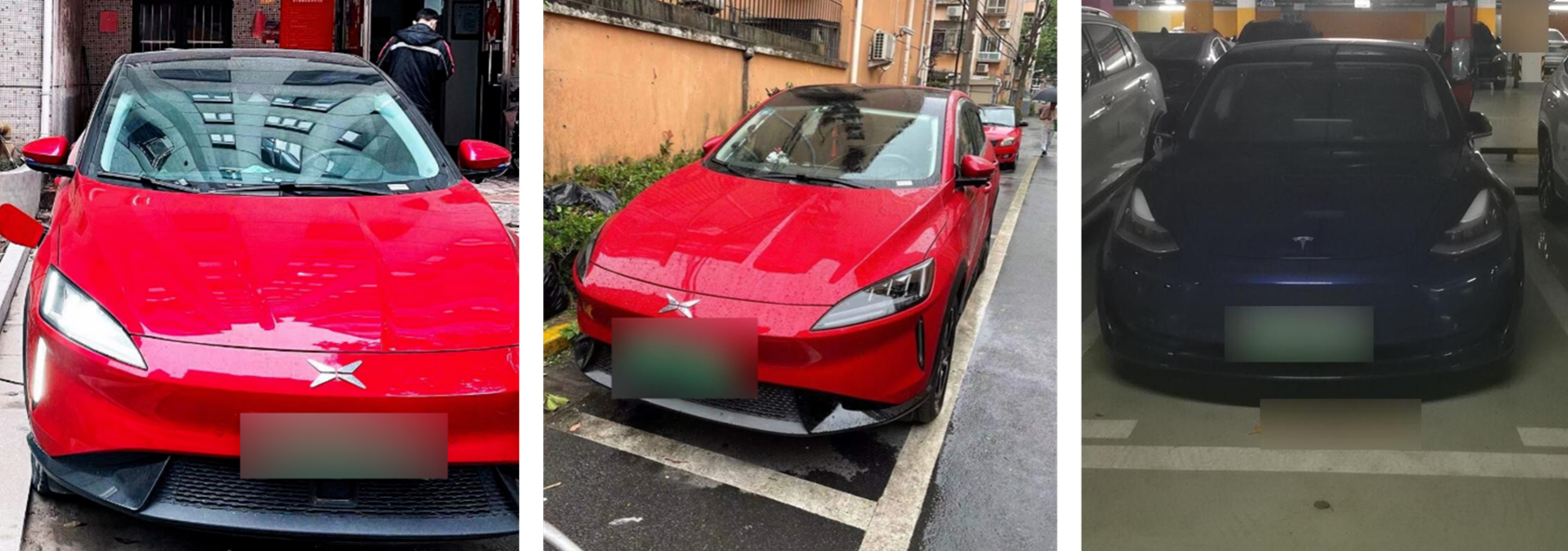[China: World Residence Tour] Rapidly developing EV market
- Release date: Apr 28, 2023
- 4781 Views
In April of this year, I temporarily returned to China. It was my first trip back in three years since the pandemic began, so I felt a fresh sense of the changes China had undergone during that time. Among these changes, the speed of China's shift toward electric vehicles (EVs) was particularly striking. In this article, I will explain the background and current state of China's EV adoption, along with the reasons consumers choose EVs, based on my observations during my stay and mobility data from Shanghai residents registered with Consumer Life Panorama.
Why Chinese Society Is Steering Toward Electrification
In recent years, China has rapidly promoted the adoption of new energy vehicles, with electric vehicles (EVs) leading the charge. Looking back a decade, one major topic in 2013 was the worsening environmental challenge of PM2.5 air pollution. One of the primary sources of PM2.5 was identified as exhaust gases from transportation modes like automobiles and ships. Consequently, the government began spearheading the shift from conventional gasoline vehicles to more environmentally friendly new energy vehicles. Among the various types of new energy vehicles, the Chinese government selected EVs and plug-in hybrid vehicles (PHEVs).
Furthermore, China had another objective in promoting EVs and PHEVs. It was to avoid competition in the traditional gasoline vehicle market, dominated by Japanese and Western manufacturers, and instead gain a leading position globally by cultivating companies and markets in the new field of new energy vehicles.
What surprised me upon returning to China and walking around Shanghai and its surrounding cities was the thorough electrification of the bus routes. Most buses have become electric vehicles, and charging facilities are fully equipped at bus terminals.
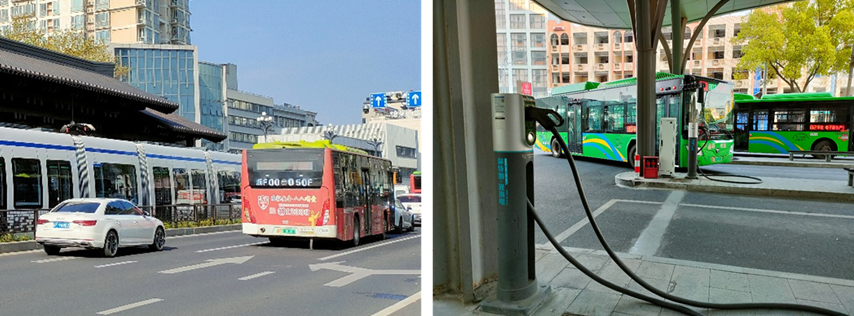
Electric buses running through the city streets and charging equipment at the bus terminal
(Source: Author's photo)
Current Status of EV Adoption
According to vehicle registration data from China's Ministry of Public Security, by the end of 2022, China's new energy vehicle (NEV) stock reached 13.1 million units, accounting for 4% of all vehicles. Among these, electric vehicles (EVs) numbered 10.45 million, representing approximately 80% of all NEVs. Furthermore, new EV registrations in 2022 exceeded 5 million units, accounting for 23% of all new vehicle registrations.
The rapid adoption of EVs stems from the government's multifaceted efforts, including establishing preferential measures such as subsidies for purchasing new energy vehicles, developing infrastructure like charging facilities, and transitioning route buses and some taxi fleets to EVs.
The author recently visited several shopping malls in downtown Shanghai and surrounding provincial cities. Not only foreign brands like Tesla, but domestic Chinese automakers also have showrooms in these malls, competing to showcase their presence. Moreover, in one downtown Shanghai mall, an entire basement level is dedicated to a new energy vehicle street, packed with numerous EVs – a clear sign of their massive popularity.
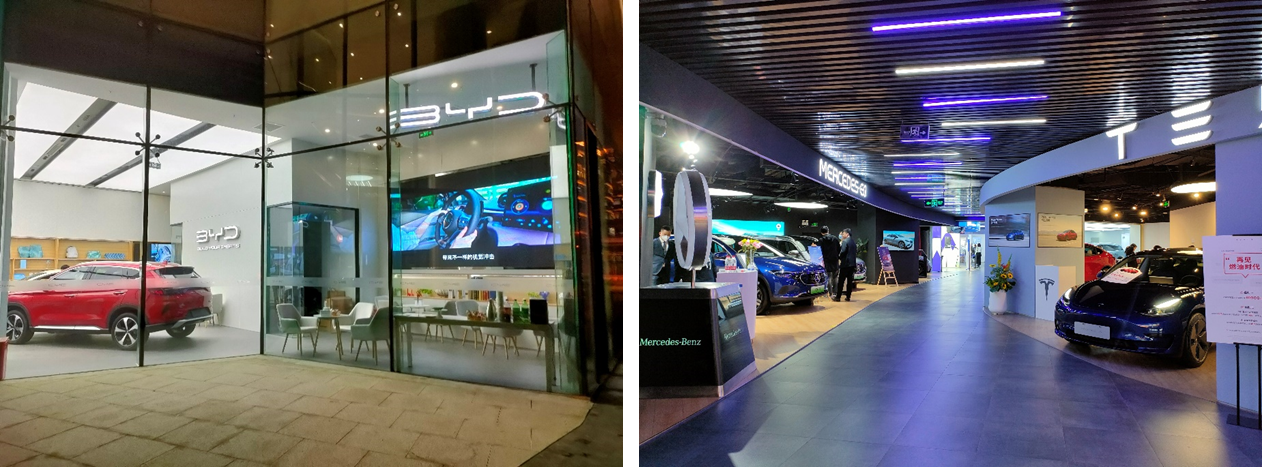
EV dealership and new energy vehicle district in a shopping mall (Source: Author's photo)
Reasons Consumers Purchase EVs
Additionally, among the 33 vehicles owned by Chinese consumers registered in our database “Consumer Life Panorama,” 12 are EVs.
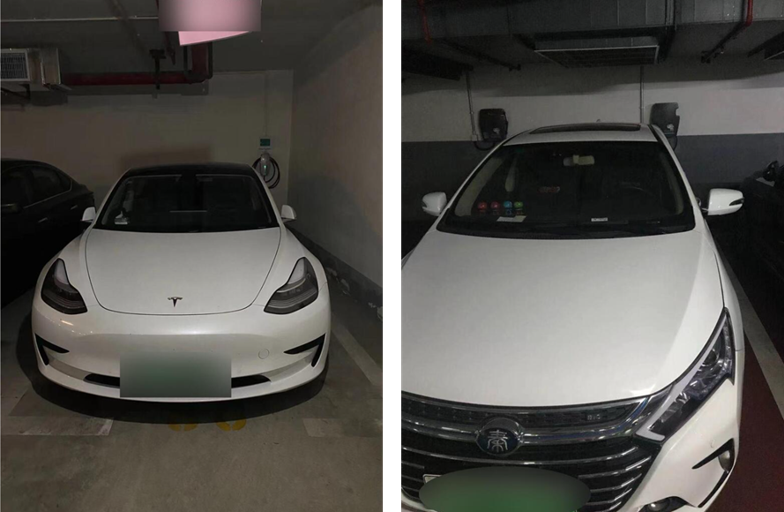
What is Consumer Life Panorama?
This is a website-type database that has accumulated visual data on more than 1,000 sei-katsu-sha from 18 countries around the world. The database includes many 3D models of living environments and 2D data of items owned by each sei-katsu-sha, and is useful for understanding overseas sei-katsu-sha, which is difficult to grasp using only letters and numbers.
Using visual data such as those cited in this column,
Compare the differences in the attributes of overseas consumers
To get a realistic understanding of the actual usage of each category
To understand the overall lifestyle of target consumers
etc., can be utilized as a “no-go” home visit survey.

Regarding why Chinese consumers choose EVs, based on interviews the author conducted with EV owners registered on Consumer Life Panorama and inquiries made to friends who own EVs upon returning to China, three main reasons can be identified.
First, economic factors. This is also the most crucial point. Buying an EV saves money in three ways: First, incentives like subsidies and tax exemptions are available at purchase. Second, especially in Shanghai, the license plate fee—normally costing 100,000 yuan—is waived for EVs. Third, electricity costs are cheaper than gasoline.
Second, infrastructure development. EVs have range limitations, so urban infrastructure must be developed first to promote adoption. Another thing that surprised me upon returning home was the convenience of EV charging. For home parking, you can easily install a compact charging station by running a cable. Domestic brands often even offer free installation as part of the service when you purchase an EV. When out and about, multiple EV charging stations are invariably installed in the underground parking lots of shopping malls. For quick charging, you can typically charge in around 30 minutes.
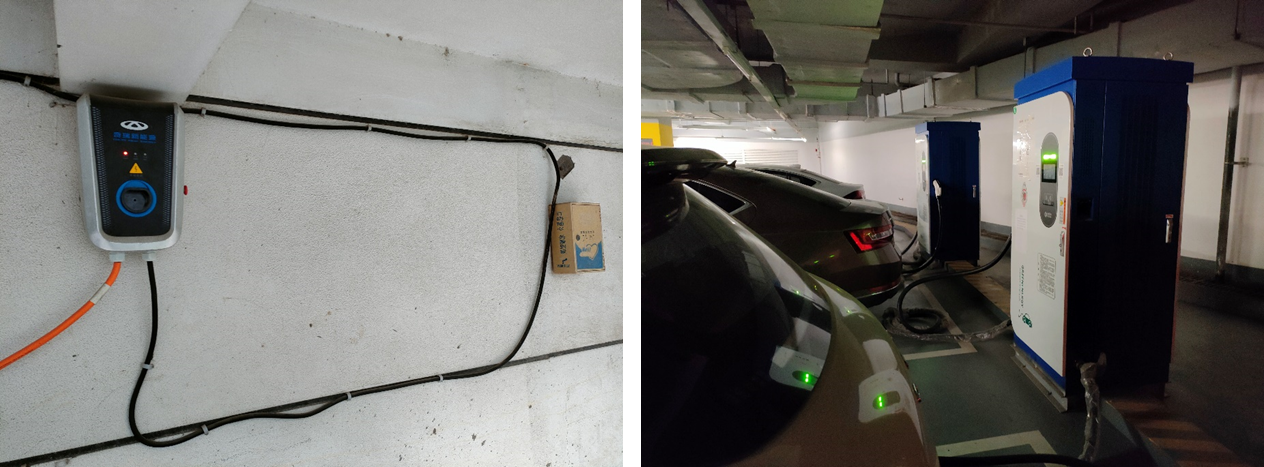
Home parking lot (left) and charging station in the shopping mall's underground parking garage
(Source: Author's photo)
Third, the experience. While conventional gasoline vehicles are used as tools for transportation, EVs are designed not just as electric vehicles but as smart mobility devices. A key distinguishing feature is the inclusion of multiple functions not found in conventional gasoline vehicles, such as voice commands to control the car while driving and a projector that displays navigation on the windshield.
-

Author profile
Yang Yan
A Chinese researcher based in Japan shares insights on overseas consumer lifestyles, primarily focusing on China. When using online ride-hailing services in China, most vehicles were EVs.
-

Editor profile
Yusuke Tatsuda
Responsible for building the Global Market Surfer website. I feel there is much to learn from the rapid pace at which Chinese companies learn from trial and error, particularly in the EV sector.
 Global Market Surfer
Global Market Surfer CLP
CLP

